Minsk’s muddled media clampdown could jeopardize warming of relations with the West.
Shhh! Belarus Wants You to Think It’s Turning Over a New Leaf

Minsk’s muddled media clampdown could jeopardize warming of relations with the West.
As relations with Russia sour, neighboring Belarus has been extending olive branches to the West in a bid to seek alternatives to Moscow’s iron embrace. But an ongoing criminal case against the editor in chief of the country’s most widely read news site has called into question whether Minsk is committed to reforms that are more than just cosmetic, see Foreign Policy.
The Belarusan Association of Journalists described 2018 as one of the worst years for independent media in the country. Last August, at least 18 journalists from independent news outlets were arrested and had their homes searched. The journalists were accused of illegally accessing the paid subscriber section of the state news wire, Belta — a seemingly minor crime punishable by up to two years’ imprisonment.
Most of the charges were later dropped. But the case against one of the journalists, Marina Zolotova, the editor in chief of the popular independent news site Tut.by, has escalated. Zolotova now stands charged with “inaction of an official,” which is comparable to criminal negligence. The charges — as with those of the other journalists accused earlier — are widely seen as being politically motivated.
It was announced on Wednesday that Zolotova’s trial will start on Feb. 12.
“Belarusan authorities are world champions in faking reforms,” said Andrei Aliaksandrau, a former deputy director of the independent Belarusan news agency Belapan. “They try to make what they did look less damaging in the eyes of the West, so it’s now not 15 journalists that are charged but only one — so it’s not a mass clampdown on journalism.”
The Belarusan Embassy in Washington, D.C., did not respond to a request for comment.
Russia’s 2014 annexation of Crimea set nerves on edge in Minsk. Since then, Belarus, once a pariah state, has taken a number of steps to woo the West. Peaceful if uncompetitive elections and the release of political prisoners in 2015 prompted the European Union and United States to lift sanctions. Foreign journalists and tourists from dozens of countries no longer need to apply for a visa to visit, and last month it was announced that Belarus would lift a longstanding cap on the number of U.S. diplomats allowed to serve in the country.
If Marina Zolotova were to be imprisoned, it would likely be a significant setback in the relationship between Belarus and the West. And even if Zolotova avoids a prison sentence, there are more discreet ways she can be prevented from doing her work under national laws that allow for people to be banned from holding certain positions within their profession.
“They understand that it is a red line, so they play in a more subtle way,” said Ulad Vialichka, the chairman of the International Consortium EuroBelarus. “Instead of putting people in prison and creating icons and symbols for politicians in Europe and internally, they just create a number of short-term arrests or a chain of short-term financial fines.”
Despite Belarus’s cautious opening up, power ultimately remains in the same hands as before, and the country’s politics remain unchanged, Vialichka said. In the past, Belarusan authorities have ruled with an iron fist — with forced disappearances and lengthy prison sentences for dissidents — that has brought international condemnation.
Print and broadcast media are tightly controlled by the state, while the internet has remained largely free, but a spate of new laws passed last year look set to change that.
New legislation that came into force in December 2018 requires online media entities to register with the state — as is required of print and broadcast outlets. Failure to do so will strip them of the right to get official comment from government agencies and the ability to protect their sources. When reporting on protests, journalists from unregistered news sources are treated as demonstrators and can be arrested.
Similar registration requirements have been used as leverage over other independent media outlets in Belarus. Broadcaster Belsat TV, which is based in Poland, has been denied accreditation in Belarus, and as a result its journalists are repeatedly harassed, arrested, and fined. Another law passed last summer allows for the criminal prosecution of those who spread fake news online.
The targeting of Tut.by and Belapan marked a significant escalation, said Johann Bihr, the head of the Eastern Europe and Central Asia desk at Reporters Without Borders. “They are independent, but not oppositional. Until now they were always kind of spared,” he said.
It’s not clear why this clampdown is taking place now. Belarusan President Alexander Lukashenko has ruled the country for almost 25 years, earning him the moniker of “Europe’s Last Dictator.” There is little transparency or accountability.
“What’s going on within the government, within the secret services and presidential administration, is pretty much a secret,” Aliaksandrau said.
State media perform poorly online compared to their independent counterparts, and one possibility is that the authorities are looking to improve the standing of the state-run outlets ahead of parliamentary and presidential elections, which are both set to take place over the next two years. In early 2018, Lukashenko appointed new heads of the state media outlets, a shake-up that could be seen as a harbinger of change.
Zolotova notes that not only does the attack on independent media undermine Minsk’s courtship of the West, but it also leaves Belarus more susceptible to propaganda from Moscow. As the two countries share a common language, Belarusan screens are filled with programs from Russian state TV promoting the Kremlin’s worldview. On Thursday, Lukashenko described information security and propaganda as one of the most serious security issues faced by the country.
If independent media is vacated, “that space will not be filled by government publications. Or if it is, they will be from a different government,” Marina Zolotova said in an email to Foreign Policy.
While highly authoritarian, the Belarusan government is also not a monolith. The confused way in which over a dozen journalists were arrested and subsequently released betrays a critical fault line within the government between progressives on the one hand and those who advocate for the status quo on the other, said Yauheni Preiherman, the head of the Belarus-based Minsk Dialogue Track-II Initiative.
European ambassadors in Minsk were quick to voice their concerns following the arrest of journalists last year. But at an institutional level, the response from Western governments and the EU was more muted amid fears that it could undermine the burgeoning rapprochement, said Andrei Yahorau, the director of an independent Belarusan think tank, the Center for European Transformation.
Dependent on Russian energy subsidies, Minsk has long been a loyal friend to Moscow. But the outbreak of war in eastern Ukraine caused a fundamental shift in the dynamics of the region, and Belarus has since sought a more neutral stance. Strategically sandwiched between Russia and a number of EU and NATO member states, Belarus serves as an important buffer zone in the eyes of Europe, Yahorau said.
This has caused some to fear that geopolitics may come to trump human rights accountability.
“We cannot expect too much support from the EU in the near future,” said Vialichka of the EuroBelarus consortium. “It is a demotivating message. On the other hand, it pushes you to be more realistic, to think about internal support.”
Despite the recent crackdown, Aliaksandrau was doubtful that the new laws would have a chilling effect on Belarus’s independent journalists.
“My feeling is that a lot of people accepted the rules of the game, we chose to do journalism, and for the time being we are allowed to do so and we will go on,” he said.
Others
-
In Belarus, a rising fear: Will we be the next Ukraine?
The relationship between Russia and Belarus has never been an easy one. The two former Soviet republics have spent the last two decades on a roller coaster ride — sometimes allies, sometimes adversaries in heated public rows.
-
The EU’s Benign Neglect of Eastern Europe
Between November 6 and December 11, 2015, Carnegie Europe continued its Capitals Series. In this second phase, the focus was on the EU’s Eastern neighbors, which the bloc has so often zigzagged over in trying to establish a coherent policy toward them collectively or bilaterally.
-
New ENP and Civil Society’s Role in Focus of the 7th EaP CSF Annual Assembly (Photo)
The 7th Annual Assembly of the Eastern Partnership Civil Society Forum was held in Kyiv on 19-21 November attracting around 300 participants, observers and guests who attended more than 20 sessions and a Networking Fair in the framework of the Assembly.
-
Is social economy a phenomenon for Belarus?
The conference “Social economy: how to be successful despite the crisis” launched in Minsk on October 22.

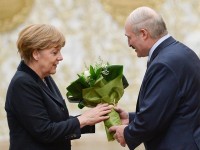
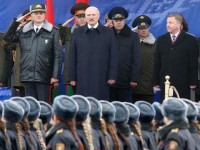
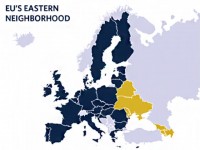
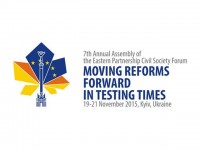
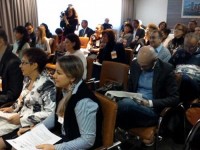


Comments
Andrei Yahorau — Al Jazeera: “Lukashenko is irresponsible”
He said Belarus would likely face economic tightening not only as a result of the coronavirus pandemic but also a Russian trade oil crisis that worsened this past winter.